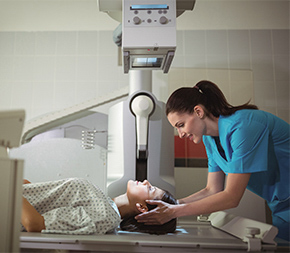
I. Introduction
A. Definition of X-ray tech
X-ray technicians, also known as radiologic technologists, are skilled professionals responsible for capturing medical images to aid in the diagnosis and treatment of various health conditions.
B. Importance of X-ray technicians
Their expertise is fundamental in helping medical practitioners visualize internal structures and detect abnormalities, contributing significantly to patient care.
C. Overview of X-ray tech salary
Understanding the compensation landscape is pivotal for individuals aspiring to join or already working in the field of X-ray technology.
II. Factors Influencing X-ray Tech Salary
A. Educational background
The level of education, whether a certificate, associate’s degree, or bachelor’s degree, significantly impacts an X-ray tech’s earning potential.
B. Experience in the field
Accrued experience plays a vital role in determining salary levels, with seasoned professionals often commanding higher pay.
C. Geographical location
Salaries can vary based on the demand for X-ray technicians in different regions and the cost of living.
D. Specializations within X-ray technology
Professionals specializing in areas such as radiography, CT, or MRI may receive higher salaries due to their specialized skills.
III. National Average X-ray Tech Salary
A. Current statistics
The current national average salary for X-ray technicians serves as a benchmark for understanding earning potential.
B. Comparison with related medical professions
Comparisons with related professions provide context, showcasing how X-ray tech salaries align within the broader healthcare landscape.
IV. Educational Paths and Their Impact on Salary
A. Certificate programs
Brief yet intensive, certificate programs offer a quicker entry into the field but may result in lower initial salaries.
B. Associate’s degree programs
Widely chosen, associate’s degree programs strike a balance between time investment and potential earning capacity.
C. Bachelor’s degree programs
Individuals pursuing a bachelor’s degree tend to have broader career opportunities and potentially higher salaries.
V. Specializations in X-ray Technology
A. Radiography
Foundational to www.7sixty.com/ technology, radiography specialists form the majority of X-ray technicians.
B. Computed Tomography (CT)
Specializing in CT scans can lead to enhanced career prospects and higher salaries.
C. Magnetic Resonance Imaging (MRI)
MRI specialists, due to the complexity of their skill set, often command higher salaries.
VI. Career Advancement Opportunities
A. Additional certifications
Acquiring additional certifications can open doors to higher-paying positions.
B. Advanced degrees
Pursuing advanced degrees, such as a master’s or a Ph.D., can lead to roles in management or education.
C. Administrative roles
Transitioning into administrative roles within healthcare organizations can offer increased earning potential.
VII. Industry Insights
A. Demand for X-ray techs in healthcare
The growing demand for diagnostic imaging ensures a stable job market for X-ray technicians.
B. Technological advancements shaping the industry
Staying abreast of technological changes is crucial for career sustainability and potential salary growth.
C. Future job prospects for X-ray technicians
Emerging trends suggest positive prospects for X-ray techs, with evolving roles in telehealth and remote diagnostics.
VIII. Tips for Maximizing X-ray Tech Salary
A. Continuing education
Engaging in continuous learning keeps skills sharp and positions individuals for salary advancements.
B. Networking within the industry
Building professional connections can lead to job opportunities and insights into salary trends.
C. Staying updated on technology trends
Adapting to technological advancements ensures relevance and potential salary growth.
IX. Challenges in the X-ray Tech Profession
A. Occupational hazards
Addressing challenges like exposure to radiation underscores the importance of safety measures and training.
B. Work-life balance
Navigating demanding schedules is crucial for maintaining a healthy work-life balance.
C. Coping with technological changes
Adapting to rapidly evolving technology can be challenging but is essential for career longevity.
X. Success Stories
A. Profiles of successful X-ray technicians
Highlighting individuals who have navigated successful careers in radiography.
B. Their journey and key takeaways
Insights from successful professionals, offering inspiration and guidance for aspiring X-ray techs.
XI. Industry Associations and Resources
A. Professional organizations for X-ray techs
Joining relevant associations provides opportunities for networking and professional development.
B. Useful resources for career development
Listing online platforms and resources that aid in ongoing education and career advancement.
XII. Conclusion
A. Recap of key points
Summarizing the crucial factors influencing X-ray tech salaries and career paths.
B. Encouragement for aspiring X-ray techs
Inspiring words for those considering or embarking on a career in X-ray technology.
